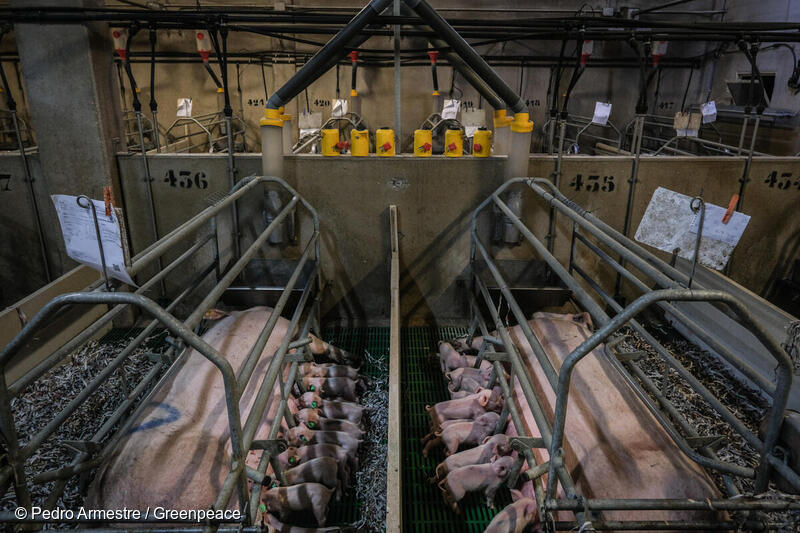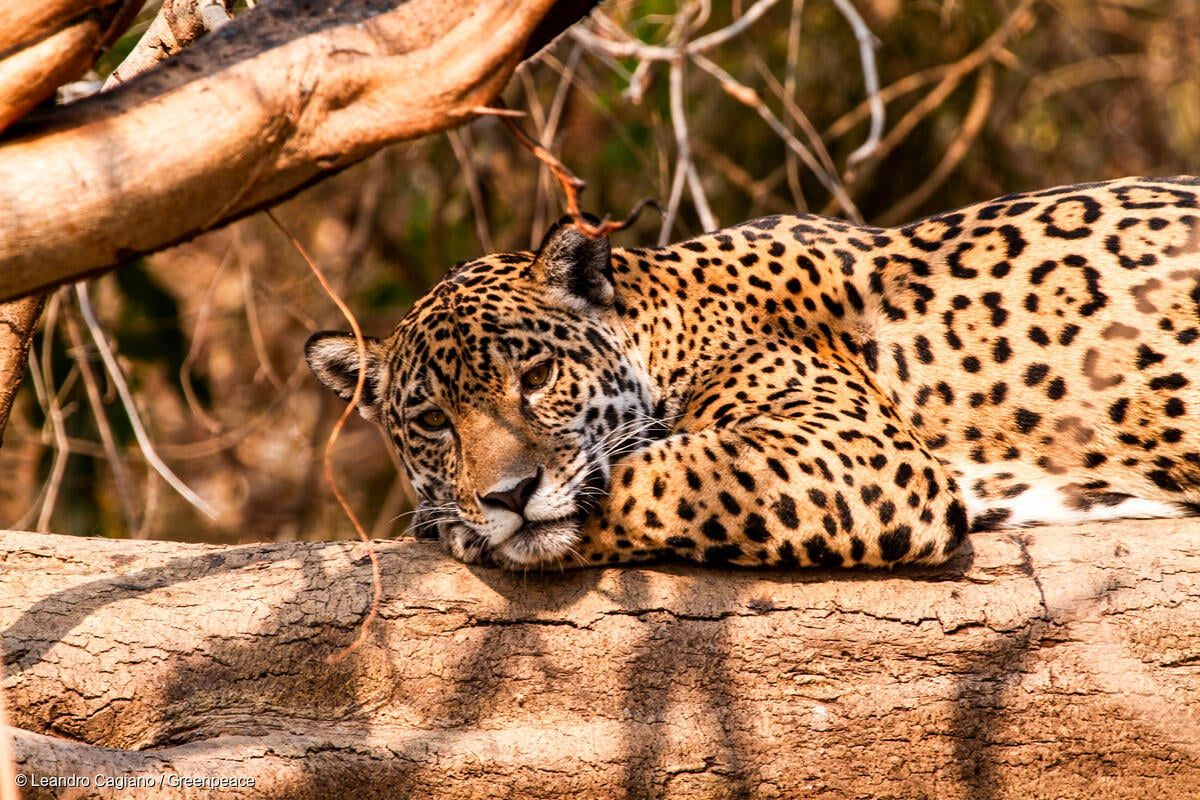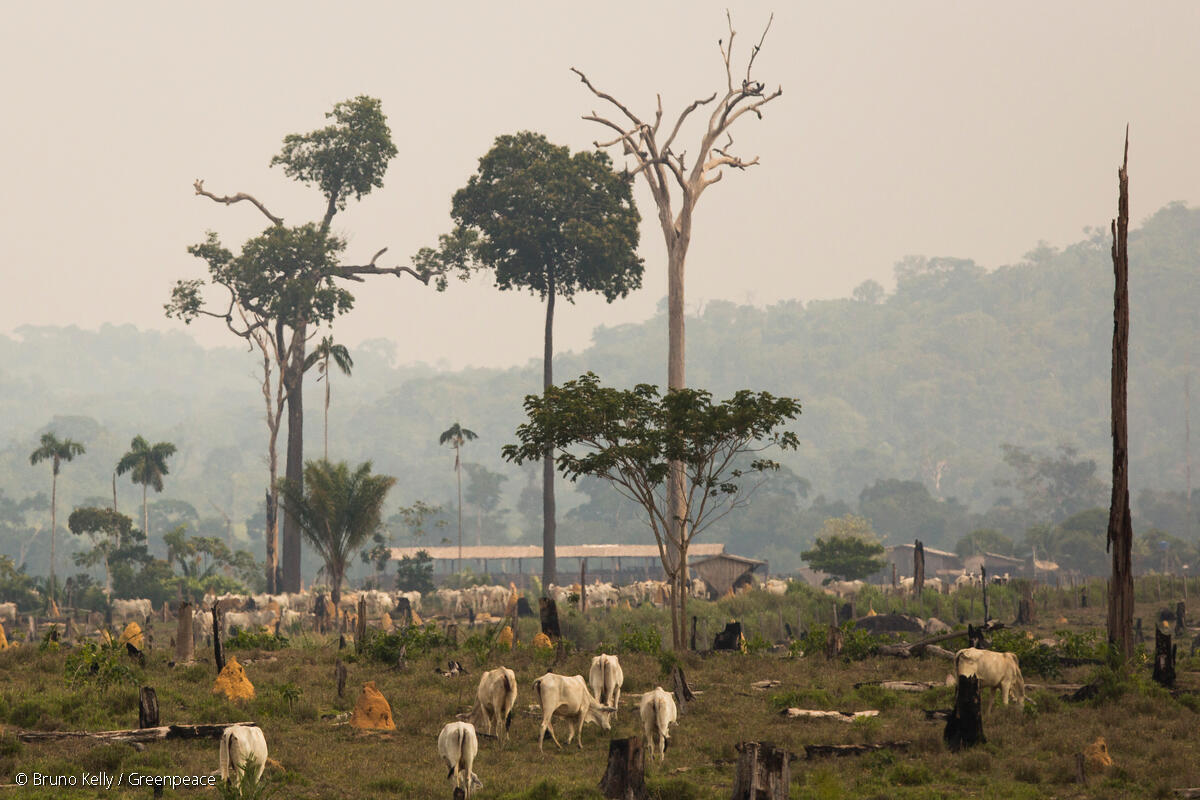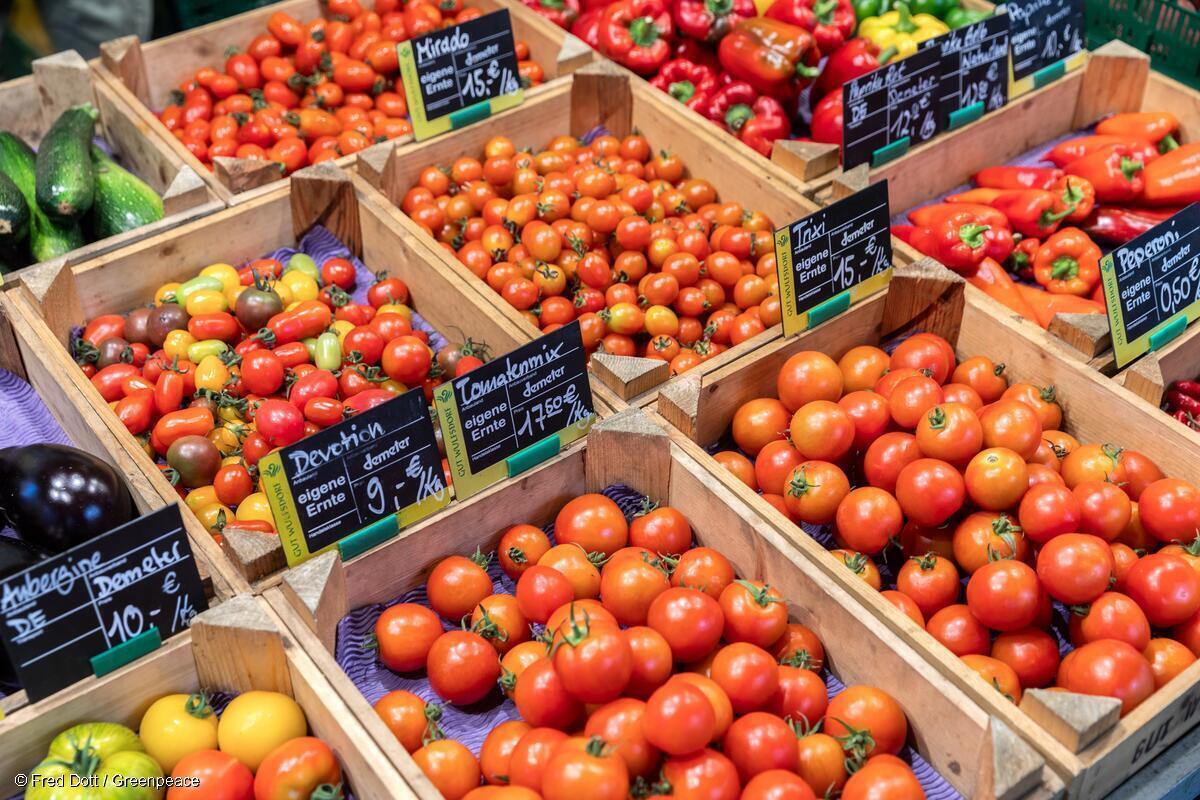
Brussels, 24 May 2023 – The European Parliament’s environment committee today voted to strengthen the EU’s industrial emissions rules by including the largest cattle farms for the first time. MEPs on the committee also voted to include more industrial pig and poultry farms in the rules, by lowering the numbers of animals beyond which they need permits to operate.
Marco Contiero, Greenpeace EU agriculture policy director, said: “Large-scale industrial farms must be treated like the polluting factories they are. Too many animals on too little land is a recipe for filthy air, dead water, useless soil and an unsafe climate. Farming that works safely within nature’s boundaries should be supported, while polluting industrial meat factories must be consigned to history.”
Under the EU’s current Industrial Emissions Directive, pig and poultry farms are considered to be industrial farms if they have over a certain number of animals, and are then subject to rules similar to those for other polluting factories. The European Commission’s review of these rules proposed to include industrial cattle farms for the first time, an approach also agreed to by national governments’ environment ministers, and now backed by the Parliament’s environment committee.
The committee recommended that cattle farms with more than 300 “livestock units” (about 415 cows on average) should be subject to the industrial emissions rules. The MEPs on the committee also suggested lowering the current thresholds for pig and poultry farms, so that more of these factory farms would be covered by the rules, and only farms with fewer than 650 pigs or 14,000 laying hens or 28,000 broiler chickens would be exempt. The European Commission had originally proposed lowering the thresholds even further.
Pollution from livestock farming
According to the European Environment Agency, the livestock sector alone accounts for 54% of all of the EU’s man-made methane emissions, mostly from cattle. Animal farming also pollutes water, air and soil through ammonia and nitrogen oxide emissions, with animal farming accounting for 73% of water pollution from EU agriculture. Farming is responsible for 94% of ammonia emissions, the vast majority of which comes from the livestock sector, again mostly from cattle.
Next steps
All members of the European Parliament will soon have a chance to vote on the environment committee’s position on the EU’s Industrial Emissions Directive during the Parliament’s plenary session from 10 to 14 July.
Contacts:
Marco Contiero, Greenpeace EU agriculture policy director: +32 (0)477 77 70 34, [email protected]
Greenpeace EU press desk: +32 (0)2 274 1911, [email protected]
For breaking news and comment on EU affairs: www.twitter.com/GreenpeaceEU
Greenpeace is an independent global campaigning network that acts to change attitudes and behaviour, to protect and conserve the environment and to promote peace. We do not accept donations from governments, the EU, businesses or political parties. Greenpeace has over three million supporters, and 26 independent national and regional organisations with offices in more than 55 countries.
EU Transparency Register: 9832909575-41



